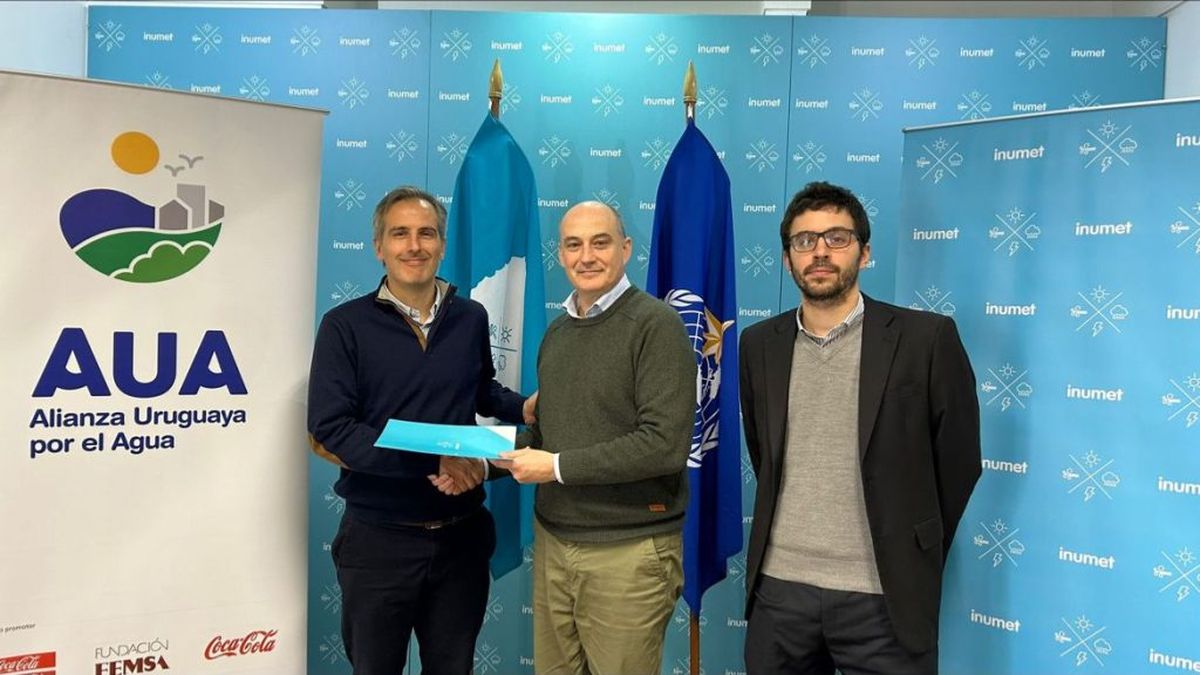A alliance of private companieswith the support of international organizations, proposes to directly influence the amount of drinking water available in Uruguay. For this, they stimulate the creation of public works, but also awareness campaigns about the use of the resource.
“The Uruguayan Alliance for Water It is a foundation non profit which arises from an initiative of several private sector companies, such as Montevideo Soft Drinks, Coca-Cola International, Femsa Foundation —which is also part of the Coca-Cola group—, the group Minerva Fouch, CC Engineers, National Beer Factories (FNC), Alliance Uruguay and the Inter-American Development Bank. The challenges regarding water issues are something that has been repeated in several countries in the region and in Uruguay we saw it last year with the drought. The idea is to become an articulator, working together with the public sector and civil organizations to generate projects and solutions that improve the quality and quantity of water,” he explained to Area Mauro de la Vega, executive director of the alliance.
Currently, work is being done on strategic lines that have to do with the conservation and restoration of the river basin St. Lucia, considered one of the priority areas.
“The first focus was on Santa Lucía because of the importance it has for Montevideo and the metropolitan area, and because of the problems it presents, which until recently was the amount of water but before it was a problem of quality. But we intend, over time, to cover the entire country,” said De la Vega.
“The idea is to generate solutions, taking advantage of our own resources with which it is counted. For example, they are working on what is called a buffer zone, which regenerates the coastal part that is on the side of the Santa Lucía to prevent effluents from falling into the river, native forests are planted or wire fences are put up to that the cattle do not go down to the river and this causes pollution. This generates, in the medium and long term, that the quality of the water improves and the soils are recharged and, therefore, more water is generated,” he added.
It is also ensured that the projects have their impact on the community, especially in those furthest from public services. “We also found that there are rural schools who have problems water supply or that the quality of the water does not make it drinkable. So we worked together with ANEP in placing a water treatment plant in Cologne, in a town called Stone of the Indians, to generate a solution for an entire community,” reported the director of the alliance.
Uruguayan Alliance for Water.jpeg
Mauro de la Vega is director of the Uruguayan Alliance for Water, which brings together private sector companies for water projects.
Think long term
The concern is installed on a critical situation linked to drinking water which, for specialists, is not completely solved and may have medium-term consequences.
“What we saw in the drought is that people did not become aware of the seriousness that the lack of water can imply. We still tend to think that we have infinite water, which is not so. For many this is not a problem and will not be repeated. What happened was that in July it rained three days in a row, the water reserves Severino Pass They increased considerably and the taste of the water changed completely. “So people left aside a problem that is going to happen again,” warned Mauro de la Vega.
An imported model, with CSR as a flag
The model of the Uruguayan Alliance for Water is based on an international reference that has more than 25 water funds in Latin America and the Caribbean.
“It actually comes from a larger movement worldwide, with the Sustainable Development Goals 2030 in United Nations to make a change, to be more sustainable both in production and in caring for the environment. And along those lines, many of the companies that are part of the alliance have a responsibility to take care of the environment. On that side, there are many that are already doing it in different areas and with other foundations, also non-profit organizations; and then from the public sector, which welcomes a foundation coming to collaborate, to support, to add arms to be able to execute projects,” concluded De La Vega.
Source: Ambito




